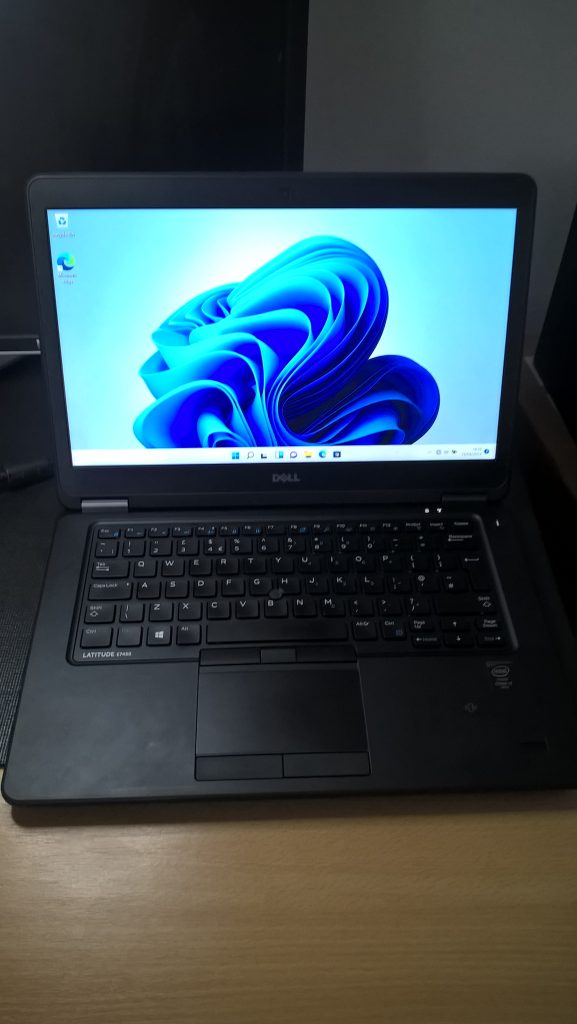Choosing the Perfect PC or Laptop for Your Engineering Degree: A Comprehensive Guide
Embarking on your first year of college, especially in an engineering program, is an exciting yet daunting chapter of your life. One of the first decisions you’ll have to make is selecting the right computer. With the growing dependency on technology in education, especially in fields like engineering, having a suitable device can significantly enhance your learning experience. This guide aims to help you navigate the complex world of computer specifications and make the best choice for your needs.
Understanding Your Requirements
Before diving into specific features and models, it’s crucial to decode what your college’s requirements mean. Typically, engineering courses involve intensive computing tasks such as simulations, 3D modeling, data analysis, and programming. The computer specifications you need will vary depending on the Software you plan to use, but here’s a breakdown of common requirements for engineering students.
Minimum vs. Recommended Specifications
- Processor (CPU):
- Minimum: Dual-core processor (Intel i3, i5, or AMD Ryzen 3)
- Recommended: Quad-core or higher (Intel i5/i7 or AMD Ryzen 5/7)
Your processor is crucial for handling multiple tasks simultaneously and executing complex calculations quickly. Engineering applications, such as AutoCAD, MATLAB, and SolidWorks, benefit significantly from a powerful CPU.
- RAM:
- Minimum: 8 GB
- Recommended: 16 GB or more
RAM (Random Access Memory) allows your computer to manage numerous tasks at once. For engineering applications that may require extensive computational power, 16 GB is often ideal.
- Storage:
- Minimum: 256 GB SSD
- Recommended: 512 GB SSD or 1 TB HDD
Solid State Drives (SSDs) are significantly faster than traditional Hard Disk Drives (HDDs), providing quicker load times and better overall performance. Larger storage will also help you accommodate various Software and large project files.
- Graphics Card (GPU):
- Minimum: Integrated graphics (e.g., Intel UHD Graphics)
- Recommended: Dedicated GPU (NVIDIA GeForce GTX, RTX, or AMD Radeon)
A dedicated graphics card will improve rendering times for 3D modeling and simulations. If you’re planning to delve into gaming or graphics-heavy applications, investing in a good GPU is essential.
- Operating System:
-
Most engineering programs require Windows due to Software compatibility. However, many students run dual-boot systems or use virtual machines for Linux-based applications.
-
Battery Life:
-
Aim for at least 6-8 hours of battery life, as long days on campus can make charging difficult.
-
Additional Features:
- Lightweight and portable design for ease of transport.
- Quality keyboard and touchpad for comfortable use during prolonged study sessions.
- Ports: Ensure it has sufficient USB ports (both USB-A and USB-C), an HDMI port for connecting to displays, and an audio jack.
Exploring the Computer Market
With a clear understanding of your requirements, it’s time to explore different systems available in the market. Here’s a breakdown of some highly rated laptops and PCs that cater to engineering students.
Top Picks for Laptops
- Dell XPS 15:
- Specifications: Intel i7, 16 GB RAM, 512 GB SSD, NVIDIA GTX 1650
-
Why It’s Great: Known for its sleek design and powerful performance, the XPS 15 offers a stunning display and high processing capabilities, making it a favorite among students in design-related fields.
-
Apple MacBook Pro (M1/M2):
- Specifications: Apple M1/M2 chip, 16 GB RAM, 512 GB SSD
-
Why It’s Great: The MacBook Pro is renowned for its build quality and battery life. While some engineering software is less compatible with Mac, many students find it capable enough, particularly for coding and general tasks.
-
Lenovo ThinkPad X1 Carbon:
- Specifications: Intel i7, 16 GB RAM, 512 GB SSD
-
Why It’s Great: It’s lightweight, has excellent build quality, and the legendary ThinkPad keyboard makes for comfortable typing—essential for long assignments and coding sessions.
-
MSI GF65 Thin:
- Specifications: Intel i5, 16 GB RAM, NVIDIA GTX 1660 Ti, 512 GB SSD
- Why It’s Great: Combining gaming and computing power, this laptop is great for students who want to game and work seamlessly on graphics-heavy applications.
Pre-Built Desktops for Engineering Students
If you prefer working at a desk, a desktop might be right for you. Desktops usually offer better performance for the price compared to laptops.
- HP Omen 25L:
- Specifications: AMD Ryzen 5, 16 GB RAM, NVIDIA GTX 1660, 512 GB SSD
-
Why It’s Great: With excellent upgrade potential and good cooling systems, Omen desktops are built for durability and performance.
-
Dell Inspiron 27 2700:
- Specifications: Intel i7, 16 GB RAM, 512 GB SSD
-
Why It’s Great: This all-in-one PC has a large screen, providing a great workspace for multitasking and running demanding engineering software.
-
Custom Build:
- Building your own desktop allows you to customize your specifications to properly meet your needs and can often be more cost-effective.
Importance of Software Compatibility
Software that you’ll use as an engineering student often has specific hardware and operating system requirements. Popular software includes:
- AutoCAD: Typically requires a robust CPU and GPU along with ample RAM for better efficiency.
- MATLAB: A high-performance CPU with good RAM is essential for data-heavy computations.
- SolidWorks: Demands a powerful CPU and a dedicated GPU to handle 3D modeling effectively.
Compatibility Issues
Before purchasing, ensure that the computer you choose can run the software required for your courses. Incompatibility can lead to frustration and lost productivity. Check for both the current version and any future updates of the software you plan to use.
Budget Considerations
As a college student, budget constraints are always a consideration. It’s important to balance performance and cost.
Determining Your Budget
Considering that you may require additional peripherals (like a mouse, external monitor, or software licenses), determining your overall budget becomes essential. Here’s a general breakdown:
- Entry-level laptops: $500 – $800
- Mid-range laptops: $800 – $1200
- High-end laptops: $1200 and above
Consider Additionally Buying Refurbished or Used Models
If you’re on a tight budget, considering refurbished laptops can be a great way to save money while still accessing quality machines. Be sure to buy from trusted sellers who provide warranties and guarantees.
Maintenance and Longevity
Investing in a good computer is just the beginning; maintaining it is equally important.
Regular Maintenance Tips
- Keep your operating system and software up-to-date for improved performance and security.
- Regularly clean both the software (removing unnecessary files) and hardware (dusting out components).
- Use antivirus software to safeguard your device.
Extending the Lifespan of Your Computer
Invest in a quality protective case or laptop sleeve to avoid physical damage. Utilizing cloud storage or external hard drives can also help manage space more effectively, prolonging your device’s performance life.
Conclusion
Choosing the right laptop or desktop as you head into your first year of an engineering degree is a critical decision that can greatly impact your academic journey. By understanding your college’s requirements, exploring suitable devices, considering software compatibility, and maintaining your computer, you can set yourself up for success.
As technology continues to evolve, staying informed about computer specs and features will empower you to make better purchasing decisions, ensuring that your computer meets both your academic and personal requirements. Invest wisely, and good luck in your studies!
Share this content:




This post offers an excellent overview of what to consider when selecting a PC or laptop for engineering studies. I’d like to add a couple of insights that could further benefit prospective buyers.
First, while hardware specifications like CPU, RAM, and GPU are crucial, it’s also important to consider the warranty and customer support services offered by manufacturers, especially for students who may experience hardware issues while juggling coursework. A strong warranty and responsive customer service can save a lot of stress during critical times.
Additionally, I recommend students look into the ecosystem of Software and tools they might need beyond the core engineering applications. For example, productivity applications like Microsoft Office or project management tools can also enhance efficiency. Many universities provide free or discounted Software to students, so make sure to investigate those offerings, as they can substantially reduce your costs.
Don’t overlook the importance of ergonomics and comfort as well! Given the long hours spent studying, investing in an external keyboard or monitor that is well-suited for prolonged use can significantly enhance your overall experience.
Lastly, consider cognitive overload and multitasking demands! A higher resolution display may seem like a luxury, but it can actually improve your productivity by allowing you to have multiple windows open side by side without requiring constant scrolling or switching tabs.
By keeping these additional factors in mind, students can make well-rounded choices that not only meet their technical needs but also support a more efficient and comfortable study environment. Good luck to all the incoming engineering students!
Response to Your Inquiry on Choosing the Right PC/Laptop
Thank you for your insightful post regarding the selection of a PC or laptop for engineering students. As a technical support engineer, I understand how crucial it is to select the right device that aligns with both your academic needs and budget.
Understanding Your Computing Needs
Your evaluation of the hardware specifications is spot-on. Engineering Software demands robust processing power and sufficient memory. As you highlighted:
Software Compatibility
As you’ve mentioned, ensuring Software compatibility is vital. Always check minimum and recommended specs for applications like AutoCAD, MATLAB, and SolidWorks. This will help in preventing potential frustration in your studies.
Budgeting Wisely
Response to “Which PC/Laptop checks all these boxes?”
Congratulations on embarking on your engineering journey! Choosing the right device can indeed make a significant difference in your academic performance. Here are some additional insights and recommendations to consider:
Advanced Requirements
While your post provides a solid foundation on the minimum and recommended specifications, you might also want to consider:
Future-Proofing Your Device
Technology evolves rapidly. Here are a few tips on future-proofing your investment: